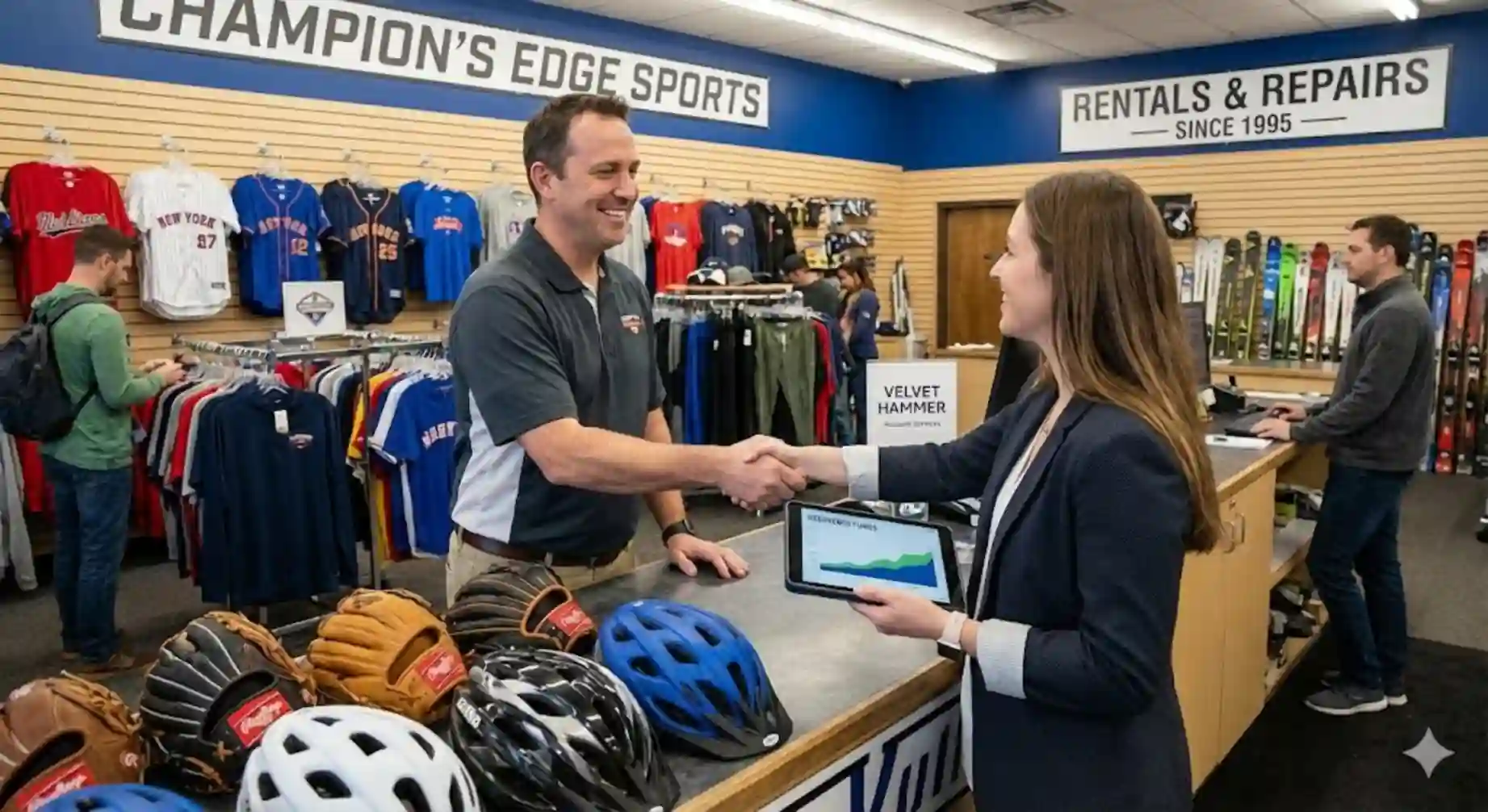From outfitting the high school varsity squad to tuning up mountain bikes for the weekend trails, your shop is the heart of the local athletic community. We know that when a specialized hockey kit isn’t returned or a team uniform invoice goes past due, it’s a hit to your roster’s budget. Our Account Reconciliation Team ensures your cash flow stays in bounds while maintaining the goodwill you’ve built with every coach and parent in town.
Nexa provides a reputation-safe approach, equipped with all 50-state collections license, offering free credit reporting, free litigation, free bankruptcy scrubs, and zero onboarding fees. Secure – SOC 2 Type II & FDCPA compliant. Over 2,000 online reviews rate us 4.85 out of 5.
Need a Collection Agency? Contact us
Transparent Pricing for Peak Performance
We keep our current rates straightforward so you can focus on the inventory, not the accounting. Whether it’s a single missing kayak or fifty overdue league fees, our structure is built for sports retail:
-
Flat-Rate Kickoff: Just $15 per account. You keep 100% of the recovered funds. This is perfect for gentle, early reminders.
-
Performance-Based (Contingency): 40% fee—if we don’t collect, you don’t pay.
-
Merchandise Recovery Special: We understand that returned gear—like a used treadmill or a season-old set of skis—isn’t as valuable as new. If the debtor returns the equipment instead of paying the cash balance, our fee drops to 25% to offset the depreciation.
Money Saver Tip: Most of our partners effectively get our fixed-fee service at no net cost. By discussing this with your CPA, you can typically categorize these fees as a deductible Business Expense on your current tax filings.
Why the “Velvet Hammer” Scores More Goals
We don’t believe in aggressive shouting matches that end up as 1-star reviews. Our “Velvet Hammer” philosophy uses a diplomatic style that is firm enough to secure payment but soft enough to protect your shop’s reputation. We treat your customers like the neighbors they are, giving them the “will to pay” you before other creditors.
Before any outreach, we perform a litigation scrub to protect you from collecting from high-risk or litigious individuals. By using our most amicable, bilingual strategies (Spanish-speaking collectors included), we see recovery rates that consistently beat the industry average. We also utilize email and text to speed up response times when appropriate.
🚩 3 Red Flags in Sports Gear Recovery
-
The “Seasonal” Disappear: Clients who rent winter gear often go silent once the snow melts; waiting until next season to call is a major pitfall.
-
Unsigned Waiver Fees: Failing to have a clear “late fee” or “recovery cost” clause on rental agreements makes fixed-fee recovery harder to justify to the debtor.
-
The “Coach” Handshake: Large team orders delivered before payment is secured are the most common source of high-value delinquency in this industry.
A Message from our Reconciliation Team
“We act as the referee, not the opponent. Our goal is to resolve the friction between you and your customer so they feel comfortable walking back into your store next season. We handle the awkward ‘where is the money?’ talk so your experts can get back to fitting boots and stringing rackets.”
Recent Success Stories
Case A: The “Away Game” Tournament Fees
A traveling baseball club failed to pay for twenty custom-printed jerseys after a tournament dispute.
-
Step 1: We initiated a bilingual outreach to the club board, identifying a treasury transition as the cause of the delay.
-
Step 2: We mediated a settlement that allowed the club to pay in two installments.
-
Result: 100% principal recovery within 30 days without losing the club’s future business.
Case B: The Unreturned E-Bike Rental
A customer rented a premium electric mountain bike for a week and stopped responding to the shop’s calls.
-
Step 1: Using skip tracing and USPS address checks, we located the customer at a new residence.
-
Step 2: We presented the option of immediate return to trigger our 25% merchandise fee rather than the full 40% cash contingency.
-
Result: The bike was returned in 48 hours, and the late fees were settled in full.
Compliance and Quality Assurance
We follow all federal rules regarding debt collection to keep your business safe. Our toolkit includes USPS address checks, skip tracing, and bankruptcy scrubs. If permitted and requested, we also handle credit reporting. To prevent rogue collectors or review-bombing, all calls are recorded and randomly reviewed by our management team.
Serving Nationally while protecting your reputation
Secure Your Revenue – Contact Nexa Today
Between seasonal inventory peaks and capital tied up in bulk team orders, managing cash flow is a constant marathon. We understand these hurdles and are here to eliminate the collection headache, shrinking your AR while you focus on the game.
Frequently Asked Questions
Does a collection agency mean I’m suing my customers?
Not at all. We focus on amicable mediation. Litigation is a last resort that we only discuss after all “Velvet Hammer” avenues are exhausted.
What if the gear is returned damaged?
We facilitate the return so you can assess the asset. Our 25% contingency rate for returns is designed specifically to acknowledge the reduced value of used sports equipment.
Can you help with customers who only speak Spanish?
Yes. We have professional Spanish-speaking collectors on board to ensure clear, respectful communication with your entire customer base.
Why shouldn’t I just have my employees call them?
Your staff was hired to be gear experts, not collectors. Making them do collections often leads to burnout and awkward interactions with local families. Let us handle the “heavy lifting.”

